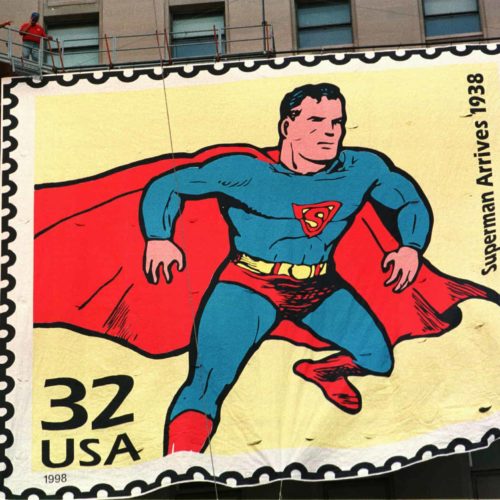Introduction
We’re continuing our series featuring journalists who have published powerful stories — but this week, we’re switching it up. Our audience engagement fellow, Alex Eichenstein, explores the ways journalists are portrayed in popular media and how that affects the way people consume news.
We’ve all seen films like “Spotlight,” “All the President’s Men” and even “Superman.” Few of us consider what they mean for the image of the journalist — but that’s where Joe Saltzman comes in. The University of Southern California professor first started researching journalism in pop culture 28 years ago (way before it was cool.) Everything has changed since then, especially in the age of Trump and his constant attacks on the free press. Saltzman’s repertoire of film and TV excerpts to share with students has never been higher. Among his favorites? Depictions of Clark Kent, Lois Lane, their co-workers Perry White and Jimmy Olson, and the many iterations of the Superman mythology that come with them.
You study how journalists are portrayed in TV and film. What do you say to folks who say this can’t really be a field of study?
Popular culture is a powerful tool for thinking about what journalism is and should be. Hero and scoundrel, delightful and despicable, public servant and public menace — that is the image of the journalist that popular culture gives us. Pop culture routinely makes the press matter by showing good journalism saving the day and bad journalism wreaking pain and havoc. It suggests that, in spite of formidable obstacles and occasional wrenching change, the press and its noblest ideals will somehow endure. Therein lies the “unseen power” of journalism’s popular image, and that is why it is necessary that we continue to study and care about it.
How do you think the image of the journalist in pop culture has impacted public perception of journalism?
The reality is that few people ever witness a journalist in action. They rarely visit a newspaper or magazine or internet office or a broadcast newsroom or any other place where journalists work to report the news of the day. Yet they have a very specific idea of what a journalist is and what he or she does because they have read about journalists in novels, short stories and comic books, and they have seen them in movies, TV programs, plays, and cartoons. The public bases its impressions and understanding of the news media on these images.
How has the image of the journalist in films changed over time, especially during the Trump presidency?
The image of the journalist in popular culture hasn’t changed much since time began. The difference in the Trump era is his unrelenting attacks on the press and “fake news,” making his constituents believe that the image of the journalist is a selfish, arrogant scoundrel out to deceive the public. This image drastically contradicts the majority of images in popular culture in which the journalist is usually seen as someone working for the public interest, not against. Much of the image of the journalist is based on images from movies and television. And it is those images burned in the public memory that have turned the phrases, “the people’s right to know,” and “first amendment freedoms,” into sick jokes rather than honored phrases. These images directly affect the public’s opinion and consequently its support of the freedom of the news media.
Takeaway: There’s power in the popular image of journalism, and we can’t forget that.


Join the conversation
Show Comments